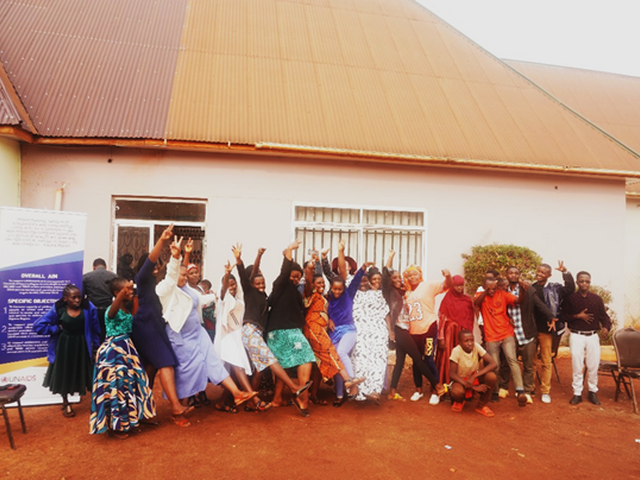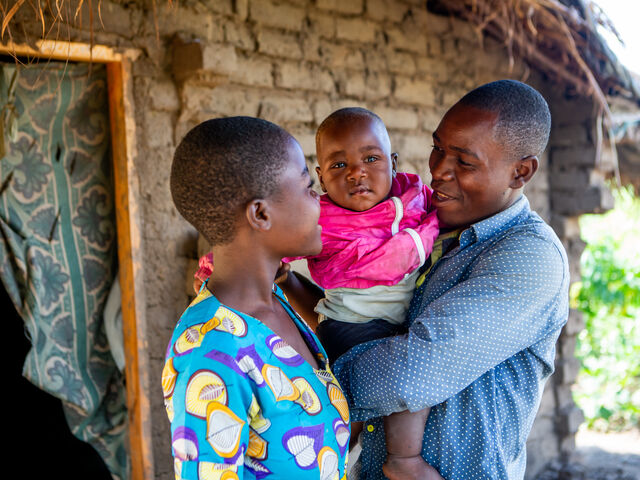After the cyclones: self-esteem workshops help lessen influence of climate shocks on child marriage in Mozambique.

Eastern and Southern Africa is on the front lines of climate change, disease outbreaks, and humanitarian crises, including conflict, all of which risk exacerbating gender-based violence, HIV transmission, unintended pregnancy, child marriage, and mental health issues. Yet despite the elevated risks in humanitarian events, sexual reproductive health and rights (SRHR) are often insufficiently integrated or visible in the humanitarian preparedness and response architecture.
Girls Are In Action (GAIA) is a toolkit developed by the humanitarian team of 2gether 4 SRHR, a Regional Joint UN Programme, delivered as one by UNAIDS, UNFPA, UNICEF and WHO, aiming to advance SRHR in Eastern and Southern Africa, in partnership with the Government of Sweden. The GAIA Toolkit furnishes humanitarian response teams with a package of teaching materials, activities and conversation starters, based on the latest evidence about what works when it comes to protecting adolescent girls when their usual support networks are removed. The toolkit is tailored to help create safer environments, enhance bodily autonomy, and support strategic life decisions for adolescent girls in regions where climate-induced disasters elevate the risk of gender-based violence and child marriage.
The primary objective of GAIA is to amplify girls' voices and build their agency and self-esteem, while promoting positive masculinity amongst boys and men. At the same time, the toolkit aims to build awareness of girls’ rights within the wider community. The toolkit equips adolescents with a comprehensive set of skills, from self-confidence to awareness around girls’ rights, bodily autonomy and sexual and reproductive health. It also provides information on financial literacy and micro-entrepreneurship, which are essential in contexts where livelihood opportunities are scarce, often due to climate-related factors. The three-month GAIA course supports adolescent girls in developing emotional resilience to withstand climate-related challenges. It also fosters a community network for girls, enabling peer-to-peer support during extreme natural events. Preliminary reports show improved adolescent confidence levels and reduced rates of early marriage and gender-based violence in pilot areas.
Women and girls often bear the greatest impact of disasters and are estimated by OCHA to comprise 80 per cent of those forcibly displaced, increasing the risk that they will experience sexual violence. Loss of livelihoods during emergencies is also known to result in increased rates of child marriage and female genital mutilation (FGM), as observed by UNICEF during the recent drought in the Horn of Africa, which affected girls as young as 12 years old.
Mary Louise Eagleton, UNICEF’s Representative in Mozambique, spoke about the impact of climate shocks on Mozambique and the need to support adolescent girls:
“Mozambique is one of the countries that are most vulnerable to climate shocks. Extreme events like cyclones, which are hitting Mozambique on an annual basis, impact infrastructure, but also exacerbate the vulnerability of children, families and communities, leading to negative coping strategies like child marriage. We saw this after Cyclones Idai and Kenneth in 2019, when Mozambique saw increases in child marriage, for example. Adolescent girls are particularly vulnerable to the impacts of climate change and it is crucial for their particular needs to be considered in efforts to prepare and respond to humanitarian crises.”




